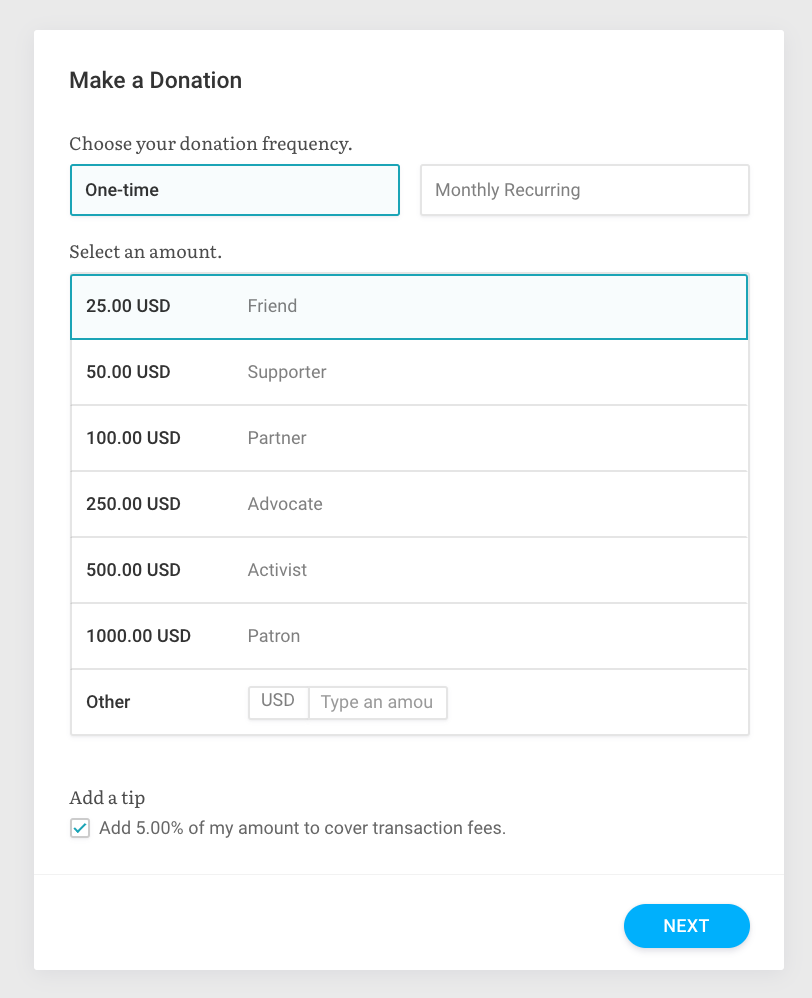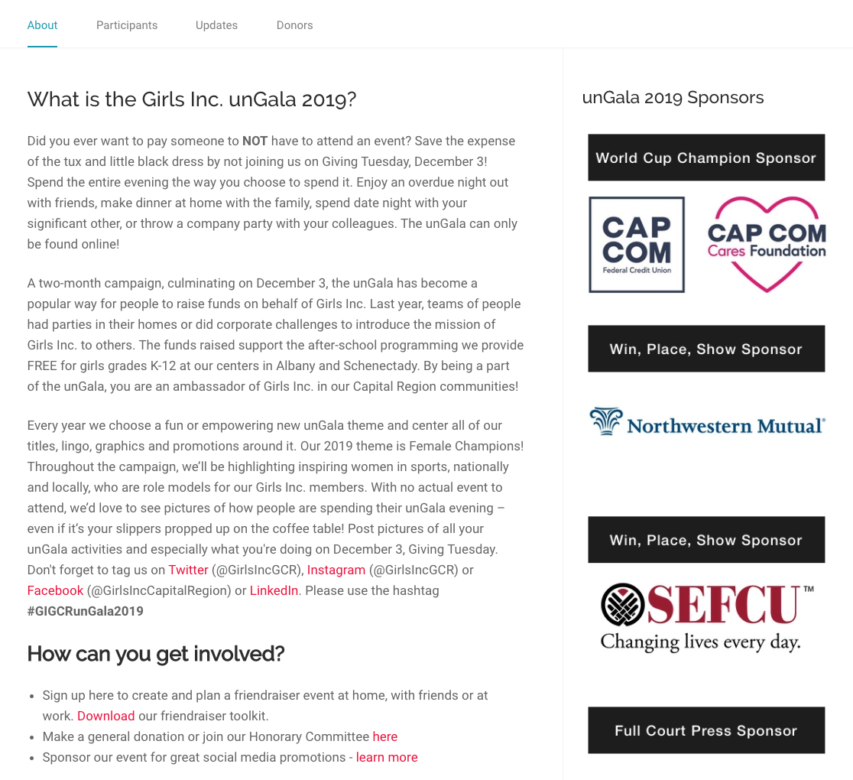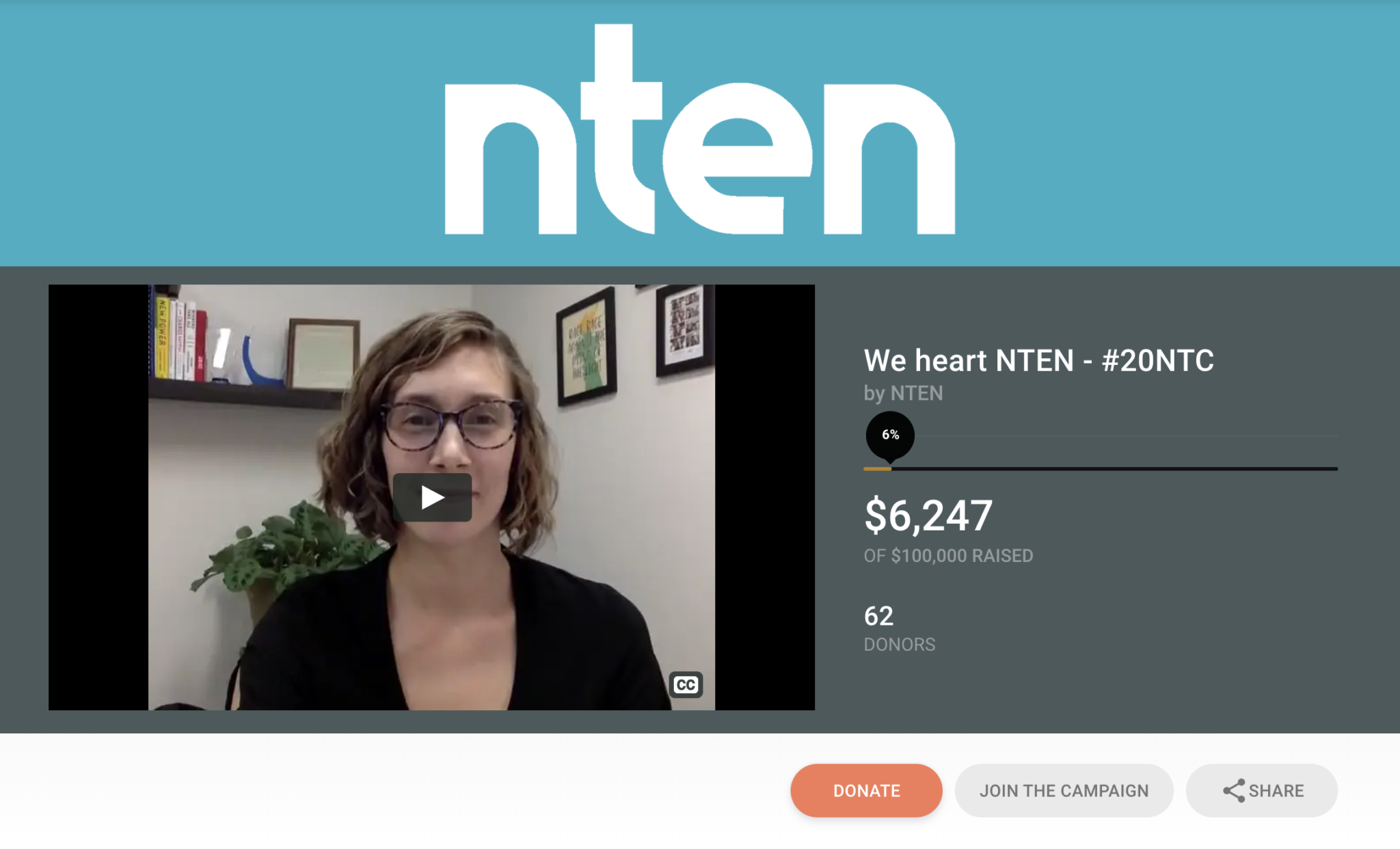The novel coronavirus outbreak has shuttered businesses, schools, and major events. Given the disruption in daily activities and frequent updates on the rapidly evolving situation, it’s left many people feeling nervous and uncertain.
While the coronavirus has hit some parts of the country harder than others, many are doing their due diligence and taking precautions to help avoid the spread.
Here’s how you can prevent the spread and navigate your programs and fundraising during this time.
Workplace Best Practices
During this time, many employers have made the health and safety of their employees, customers, and contractors a top priority. Even if the coronavirus hasn’t arrived in your workplace, it’s important to be proactive by monitoring the situation and encouraging everyone to do their part to slow the spread of any viruses.
As a result, here are some common precautions and behaviors to get your workplace ready for a potential outbreak:
- Practice good hygiene and wash your hands often with soap and warm water for at least 20 seconds. If soap and water isn’t available, use an alcohol-based hand sanitizer that contains at least 60% alcohol.
- Practice social distancing strategies if possible. Ideally, it’s best to work from home, if that’s an option for you. Or, if you need to be in the office, stay at least 6 feet away from others. In addition, avoid close contact with people who are sick.
- Stay home if you have a fever, show respiratory symptoms (dry cough, shortness of breath, etc.), or feel unwell. Many employers have implemented flexible work from home policies and suspended any nonessential travel.
- Consider teleconferencing or virtual events in lieu of face-to-face meetings.
- Cover a cough or sneeze with a tissue. Be sure to immediately toss the tissue in the trash. If you don’t have a tissue, cough or sneeze into your upper sleeve or elbow, not your hands.
- Routinely clean and disinfect frequently touched surfaces and objects, such as phones, light switches, keyboards, and doorknobs.
- Get plenty of sleep, take vitamins, and drink lots of fluids.
- Have an outbreak response plan in place in case someone does become sick or show flu-like symptoms.
- Have templated crisis messaging around COVID-19 ready to plug and play should scheduled events or programs be canceled or postponed.
Running Necessary In-Person Programs
Amid coronavirus concerns, it’s strongly encouraged to postpone or cancel any gatherings of 10 or more people and, of course, cancel large-scale events within the next 8 weeks.
Of course, there’s going to be times when limiting work-related meetings and events aren’t feasible.
Here’s an excerpt from Parkinson Canada’s COVID-19 strategy, about how they can navigate programs:
Delivery of Programs and Services Considerations:
a. Cancelling all in-person support groups and offering a virtual alternative for them (until further notice)
b. Canceling or postponing all in-person events (until further notice) (ie. Educational workshops, conferences) – looking at how we can offer virtually
If certain programs are necessary to be run in-person, it’s important to follow thorough procedures in line with health guidelines. For example, the Amelia Community Theatre has developed a daily protocol to manage the spread of this pandemic:
“We are a performance campus in a senior demographic market, so obviously we are on alert to follow both state, city and county health recommendations and mandatory guidances. Presently, we have only two nightly performances left in our smaller studio space that seats less than 80.
- Deep cleaning of all hard surfaces with antibacterial cleaning solutions- especially arm rests, any handles or handrails. We are now giving out Clorox wipes with programs! This is a first but a very good suggestion coming from one of our ushers who is a retired MD.
- Soft surfaces like theatre chairs are sprayed twice a day and after every show with an anti-bacterial spray that last for 24 hours.
- Bathrooms are cleaned three times a day. Clorox wipes and hand sanitizer are in all patron areas.
- No food is being served, kitchens are off limits to everyone except staff.
- Staff and volunteers are being asked to wash their hands every thirty minutes while on duty. No handshakes of course and we are having the cast conduct their meet and greets outside in an open air environment.
- We are also giving the cast the option to participate in the after show meet and greet and one has opted out.
- Using and encouraging online ticket transactions instead of walk ups.
- Attendance is down so we are encouraging patrons to sit in staggered seats.
- We have increased sunlight and open ventilation in our small black box studio auditorium by leaving all doors open and allowing sunlight to flood the space during daylight hours.
- Encouraging our volunteers to stay at home if they are concerned and have health risk.
- Encouraging credit card taps at our bar instead of handling cash.
- Members and patrons have cancelled tickets and I have trained the staff and Box Office ladies to suggest the patron donate the cost of their tickets (15-22.00 value) to the theatre.
- Creating positive posts on all our social media platforms and replying to all emails and post comments with favorable responses.
- Opening up our small lobby and encouraging patrons to enjoy the fresh night air before entering the small auditorium space.
- Staying very connected to our patrons and volunteers and keeping them in the communication chain at all times. Don’t step back from being up front with your donors, members, patrons and volunteers.”
With new updates coming out every day (and seemingly every hour), things can change rapidly, and keep up to date on the latest suggestions from the CDC. Be prepared to make adjustments as necessary, even when you have a plan in place.
It’s also okay if you don’t have everything figured out right now. For Teri Miller, Director of Development at Go Beyond Hunger, their plan is “a rather large question”. However, the organization is “making some large changes programmatically so that [they] can continue to serve [their] community with groceries and services”. From a fundraising perspective, aside from canceling their large event, the org is “still in the planning phase”.
For more information on community strategies to keep yourself and those around you safe, check out official CDC guidance.
Navigating Fundraising
One of the biggest impacts is to events, and as a fundraiser who’s been planning an event all year, we know it’s important for you to have safe alternatives that will still help you bring in the funds needed and ensure that the show goes on.
1. Donation Page
With more and more places putting restrictions on large gatherings, we anticipate that online donations will be more important than ever. As such, ensure that you have a good donation page up and running.

2. Traditional Peer-to-Peer
If you’re worried about your fundraising plans, peer-to-peer campaigns are the way to go. Have supporters set up pages to fundraise on your nonprofit’s behalf.
During this uncertain time, it’s easy to make assumptions about what your supporters/donors will and won’t do but now is the time to ask for help. Offer ways your donors can help you fundraise – you’ll be surprised at who steps up in a major way.
3. UnGala
In response to the pandemic, it’s likely that you will have to make the difficult decision to cancel your in-person gala. However, the months of planning poured into your event doesn’t have to go to waste. Consider transitioning your gala into an UnGala instead.
An UnGala is a departure from the traditional components of a live event. It’s essentially a fancy peer-to-peer and can help you raise more with less effort.

3. Live-stream Events
Whether it’s a concert, yoga class, special speaker, board meeting, or press conference, consider hosting your event online. Try using tools like Zoom video conferencing, Facebook Live, Youtube live-stream, and other electronic interfaces to bring everything online.
According to representatives from the Swedenborg Foundation, COVID-19 has forced them to “reschedule events and for the first time ever and cancel an ‘in-person’ board and annual meeting”. However, by utilizing youtube video outreach, they have “seen an explosion of views from what [they] presume are people staying home and binge watching”.
4. Virtual Race/Walk
As the situation on COVID-19 develops, an expanding number of cities have issued bans on gatherings of more than a certain number of people. If you have a race or walk coming up and have to adhere to any local restrictions, try moving your in-person walk/race to virtual.
A virtual race will allow fundraisers to run their own race from any location, allowing for safe social distancing while also helping you hit your fundraising goal. To make the “run” more cohesive, build in some live-streaming and social sharing components.
4. Sending Out A Simple Crowdfunding Campaign
Many organizations depend on in-person events, and sometimes there’s not enough time or resources to move it all online. The reality is that these last-minute changes can have a lasting impact on an organization’s budget but these effects can be softened by setting up a simple crowdfunding campaign.

In light of coronavirus concerns, NTEN followed the advice of healthcare professionals and made the difficult decision to cancel their annual nonprofit technology conference. As a result, this is a huge hit to the organization’s budget and unfortunately, their insurance does not cover the cancellations as a result of COVID-19.
In order to mitigate the impact and honor contracts made, NTEN set up a crowdfunding campaign to ask for support.
This is definitely something worth considering for your nonprofit too.
CauseVox Is Here to Help
In the unpleasant and uncertain age of coronavirus, CauseVox is here to help.
If the potential impact of the virus has put your 2020 fundraising plans in limbo, our platform offers digital alternatives that support peer-to-peer, crowdfunding campaigns, events, and more.
With nonprofits making changes to address contamination risk, you can still fundraise successfully during the crisis by pivoting to virtual strategies.
A Note From Our Team
Stay safe! It’s so important to do our best to prevent the spread and protect the most vulnerable. We wish you good health and safety, and peace of mind as we navigate these uncertain times together.
You’re not alone, and there is a path forward.
Best wishes from the CauseVox team!




